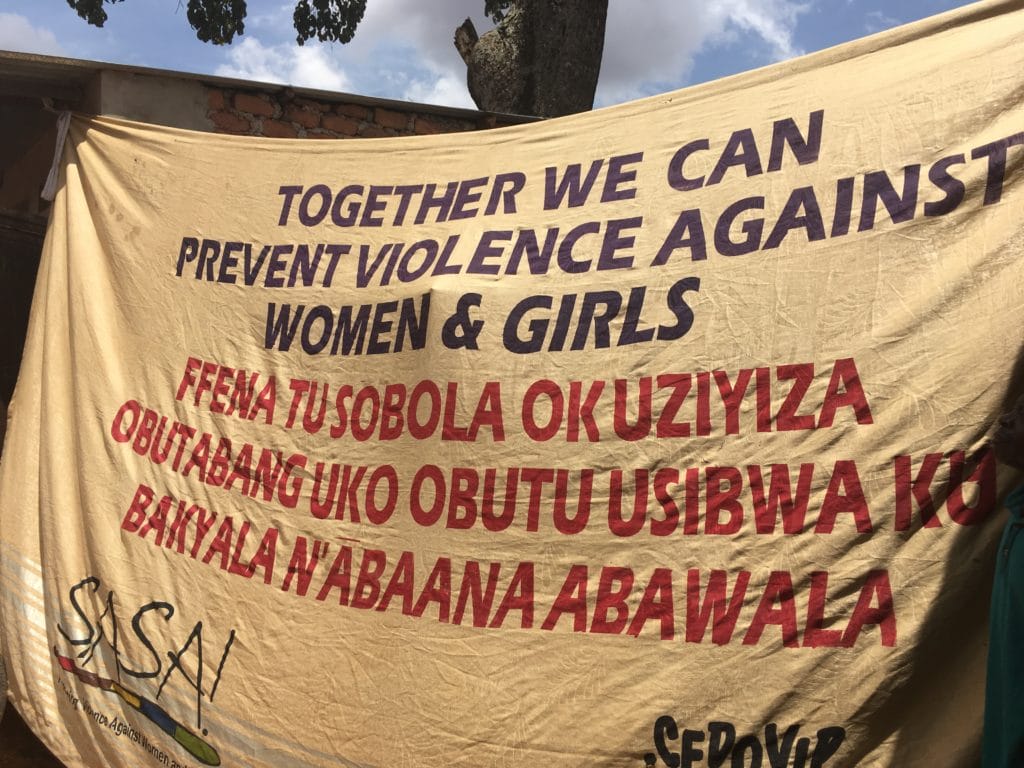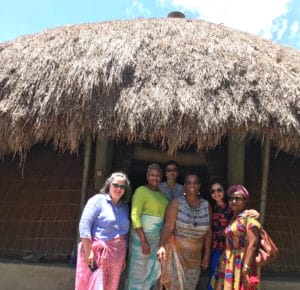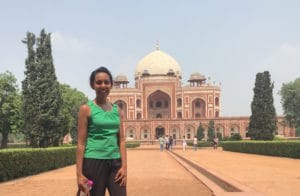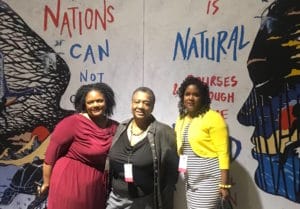For AWS’ Perkins, Gender Equity is a Global Concern

Editor’s note: A great deal took place in 2018 that affected women’s rights. In the U.S., for instance, the #MeToo movement continued to spread while the issue of sexual assault became the focus of Supreme Court nominee Brett Kavanaugh’s heated congressional hearings. In the fall U.S. elections, a record-breaking number of women were elected to Congress.
But as Linda Perkins, director of CGU’s Applied Women’s Studies program and associate university professor, wants everyone to remember, the struggle for gender equality extends around the world. As a new year is about to begin, Perkins sums up some of the recent AWS student and faculty involvement with women’s rights issues on the international stage in the following Q & A.
***
If you summarized one of the main messages of our AWS program in a single sentence, what would it be?
Perkins: It’s a point that hopefully should be obvious to everyone by now. That is: Gender equity isn’t just local or in your community; it’s a global issue. That is something that all of my students understand, and that I’ve experienced myself during my own travels.
Where have you traveled?
Perkins: I’m a member of the board of the International Center for Research on Women (ICRW), which is headquartered in Washington, D.C., and has regional offices in Kampala, Uganda, and in New Delhi, India. I also serve on the Africa and Asia committees. We have conducted research projects throughout the world on an array of projects related to gender equity (for more, see icrw.org). Not long ago I had the opportunity to spend ten days visiting programs in Uganda and Tanzania with the Director of ICRW, Dr. Sarah Kambu. Most of the programs we visited were ones in villages that focused upon intimate partner violence.

What is interesting is that the projects we worked on included men and boys as participants as well as women and girls. That is important to understand. I had a chance to observe and participate in discussions about women and gender studies at Makerere University in Kampala with the faculty and students of the School of Women and Gender Studies.
That trip afforded me with time to meet community activists, scholars, and funders of the various projects in the countries that I visited. It was a powerful experience; travel and exposure to the situations of people in other countries can create a deep impact—which is why I’ve encouraged our students to travel and see for themselves.
What kinds of global travel have your AWS students experienced recently?
Perkins: In the fall of 2017, a transdisciplinary course was team taught by me and Professor Sallama Shaker called Changing Gender Roles: A Global Perspective. The course focused on the United Nations Sustainable Development Goals (SDGs), and Prof. Shaker and four students from the class had the opportunity to visit the United Nations during the semester and meet distinguished economists working with the SDGs.

A month later, these students returned to the UN to participate in the Economic and Social Youth Council. Nirshila Chand, Community and Global Health doctoral student, and Shari Bissoondatt, Cultural Studies doctoral student, are both Women’s and Gender Studies certificate students and were among the four selected participants.
Nirshila also spent two months in New Delhi, India, last summer for an internship with the ICRW. It was an extraordinary opportunity for her to work with the ICRW on two violence prevention projects examining intimate partner violence and childhood violence as public health issues in India.
I’m also very proud of other AWS students who have committed time to studying the challenges of gender equity abroad like Esme Taylor, who spent two weeks in Japan last year on a Friedman grant.

In light of the increased awareness about violence and the fight for equality brought on by the #MeToo movement and so many other things, how do you feel about AWS’ work in recent years?
Perkins: I’m proud of it; I’ve always been proud. Our AWS students and graduates can be found serving in so many different kinds of roles that increase awareness and our understanding. Alumna Mariam Youssef, for example, is one of three co-chairs for the Social Justice Task Force of the National Women’s Studies Association. The task force has two main responsibilities: coordinating a sponsored session at the NWSA’s annual conference; and editing a quarterly journal called Social Justice Quarterly.
Along with Mariam, other AWS members who have spent time better understanding the issues of gender equity today include Magdalena Suarez, who attended the Act for Women Campaign in Washington D.C., which was sponsored by the Center for Reproductive Rights, as part of an effort to lobby for the federal bill known as the Women’s Health Protection Act (WHPA). She ended up learning so much about what is at stake concerning women’s reproductive rights today.
Is this why you encourage students to travel around the nation and abroad: because that is the best way to become informed and understand what’s happening now?
Perkins: Absolutely. For example, our AWS program was represented at last spring’s Feminist Majority Foundation’s awards night and the United State of Women Summit held in Los Angeles. I’m also proud of students Melanie Lindsay, Madison Clark, Natesha Blessey, and Lily Rowen for taking part not long ago in Mount Saint Mary’s Women’s Leadership Conference in Los Angeles. The theme of that conference was “The Resilient Leader: Propelling Our Ability to Lead.”

What do you hope your students gain by their involvement off campus and abroad?
Perkins: So much is happening in the world now, and it’s so important to understand and play a part. They need to be present, whether it’s by participating and listening …. or by lending their voices as witnesses and scholars.
Not long ago, we welcomed guest lecturer Dr. Suzanne Petroni, a renowned expert in gender equity in Global Health and Development internationally. During her lecture—titled “The Missing Link: Gender in International Development”—she underlined what’s at stake. She said that it’s crucial to keep gender central to the growing international development initiatives.
If that’s the case, then our AWS community will do everything we can to make sure that it does.
